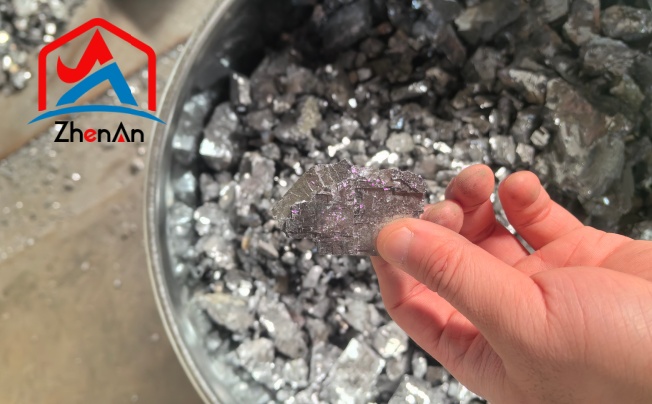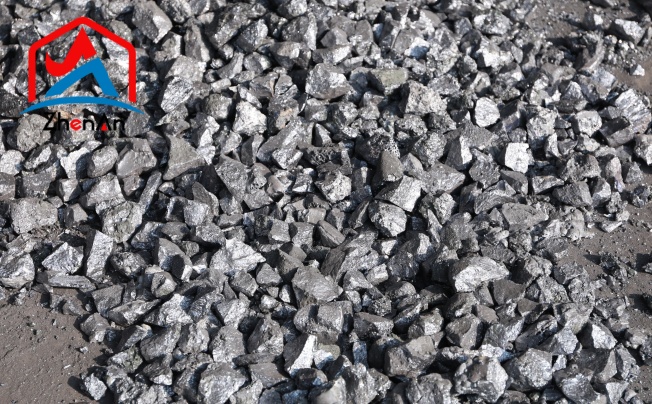What Is Calcined Petroleum Coke?
Green petroleum coke is heated to remove moisture, volatile materials, and impurities and to improve electrical conductivity. The result is calcined petroleum coke (CPC), a high purity carbon material. Approximately 80 percent of the demand for calcined petroleum coke is met by the primary aluminium sector. The steel and chemical industries are the primary sources of the remaining demand for calcined coke, primarily for use as recarburizer and in the production of titanium dioxide pigment.
Green coke is further processed by calcining it in a rotary kiln, which eliminates any remaining volatile hydrocarbons. To create anode coke with the appropriate shape and physical characteristics, the calcined petroleum coke can be treated one more time in an anode baking oven. The steel and aluminium industries are the primary users of the anodes. The carbon content of petcoke can range from 98 to 99%, depending on the type of petroleum feedstock utilised. This produces a carbon-based molecule with 3.0–4.0% hydrogen concentrations. When coke is calcined, the 0.1–0.5% nitrogen and 0.2–6.0% sulphur that are present in raw (or green) coke turn into emissions.
An essential component of the anodes used in the electrolytic manufacture of aluminium around the world is calcined petroleum coke. Additionally, it serves as a source of carbon for a number of metallurgical uses, such as the creation of graphite electrodes and anodes for aluminium pot liners, and as a feedstock for the synthesis of synthetic graphite.
In conclusion, green petroleum coke is heated to remove moisture, volatile materials, and impurities, yielding calcined petroleum coke, a high-purity carbon substance. Primarily utilised in the aluminium sector, it also finds demand in the steel and chemical industries. Moreover, it serves as a raw material for the synthesis of synthetic graphite and other metallurgical processes.
Applications of Calcined Petroleum Coke
The aluminium and steel industries are the main users of calcined petroleum coke (CPC), which has various other significant industrial uses. The following are some important uses for calcined petroleum coke:
- Production of Anodes for Smelting Aluminium
In the Hall-Héroult aluminium smelting method, carbon anodes are made from calcined petroleum coke. These anodes, which are renowned for their low impurity levels, fast availability, and reasonably low cost, are essential for the electrolytic manufacture of aluminium.
- Anode Production for Smelting Steel and Titanium
Calcined petroleum coke is utilised not only in the smelting of aluminium but also in the production of anode coke for the steel and titanium smelting industries. These smelting procedures require the anodes made from calcined petroleum coke.
- Creating Graphite Electrodes
Carbon is obtained from calcined petroleum coke and used in a number of metallurgical processes, such as the production of graphite electrodes. Steel and other metals are produced in electric arc furnaces using these electrodes.
- Additional Uses in Industry
Petroleum coke that has been calcined is utilised in many industrial processes as a source of carbon and energy. It is widely utilised in a variety of production sectors, including textile, steel, and cement. It is also utilised as fuel in the brick and metal sectors.
Manufacturing Process Of Calcined Petroleum Coke
The following procedures are commonly included in the production of calcined petroleum coke:
- Crude Oil Extraction: Drilling is used to remove crude oil from the earth, which is subsequently delivered to refineries.
- Distillation: In an oil refinery, crude oil is separated into different components including petrol, diesel, jet fuel, and others by the distillation process.
- Coking: Heavy oils are heated to high temperatures in the refinery's coking unit to create lighter products and byproducts. This technique provides green petroleum coke.
- Calcination: After being subjected to high temperatures (usually between 1200 and 1350 degrees Celsius) in a calcining kiln, the green petroleum coke is converted into calcined petroleum coke by removing moisture and volatile materials.
- Sizing and Packaging: The petroleum coke that has been calcined is next processed, sized in accordance with client requirements, and packed for distribution and usage in a range of industrial applications.
Price of Calcined Petroleum Coke
A number of variables, including location, market demand, and economic indicators, affect the price of calcined petroleum coke. The following price points are current:
As of the end of the most recent quarter, USD 480/MT is the price of Petroleum Coke Calcined Grade CFR Santos in Brazil.
The price of Petroleum Coke Calcinated grade FOB USGC at the end of the most recent quarter in the USA was USD 668/MT.
Depending on the goods and location, prices in India might range from 100 to 5,00,000 INR.
The demand for calcined petroleum coke in various regions and the state of the market are reflected in these prices.
To obtain the most recent pricing information for a specific location or market, it is recommended to refer to industry studies or local suppliers.






